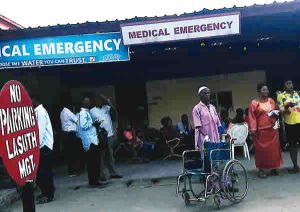In a recent seminar organized by Population Matters in partnership with CISLAC/TI-Nigeria, stakeholders convened to address the pressing issue of Nigeria’s burgeoning population and its implications for national development. With projections estimating Nigeria’s population to double by 2050, participants emphasized the urgent need for action to mitigate potential socio-economic challenges.
During the seminar, key observations were made regarding the lack of discourse around population issues in Nigeria, which has hindered effective planning and development efforts. The consequences of this neglect include high rates of youth unemployment, insecurity, inadequate healthcare services, and education disparities, among others.
Furthermore, Nigeria’s status as one of the top countries with the highest under-five mortality rates underscores the critical need for population planning and intervention strategies. Stakeholders also highlighted the detrimental impact of overconsumption and environmental degradation on human survival, calling for sustainable practices to safeguard the ecosystem.
In response to these challenges, participants put forth a series of recommendations aimed at fostering informed dialogue, policy formulation, and community engagement. These include the establishment of a Nigeria Population Matters Platform to facilitate ongoing discussions, advocacy for smaller families to alleviate poverty and improve socio-economic outcomes, and the translation of research findings into local languages for wider dissemination.
Additionally, stakeholders advocated for the integration of adolescent and youth perspectives into population discourse, as well as initiatives to combat girl child marriage and promote education and empowerment opportunities. Collaborative efforts among government agencies, civil society organizations, and traditional institutions were also emphasized to enhance awareness and implementation of population planning initiatives.
The seminar concluded with a call for increased investment in research and development to better understand the complex interplay between population dynamics, environmental sustainability, and societal well-being.










